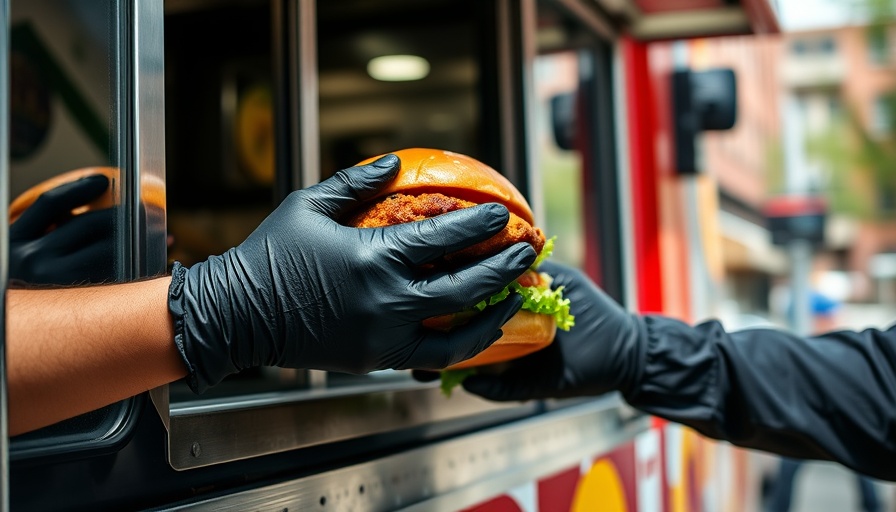
The Rising Concern of Unpermitted Food Vendors in Charlotte
In recent months, Mecklenburg County has witnessed a troubling surge in complaints about food vendors operating without the necessary permits, particularly in the vibrant Uptown and South End areas. County officials have voiced serious concerns regarding these unregulated vendors, highlighting the significant health risks they pose. Food safety inspections are critical for ensuring proper food handling and hygiene standards, and these street vendors are skirting essential regulations aimed at protecting public health.
The Health Risks: What They Mean for Residents
Chrystal Swinger, the director of Environmental Health for Mecklenburg County, stated, "Unpermitted food vendors pose a serious health risk of foodborne illness, which can be severe and even fatal." Without the oversight of food safety inspectors, these vendors can compromise food sanitation practices, increasing the likelihood of foodborne illnesses affecting customers. This alarming situation calls for community awareness and action.
Community Engagement: A Vital Role in Public Health
Local residents are encouraged to play a proactive role in addressing this issue. By avoiding patronage of unpermitted food vendors, they help to eliminate demand for unsafe dining options. Moreover, community members can report illegal vendors to authorities, thus supporting health inspection efforts aimed at regulating food safety in Charlotte.
The Bigger Picture: Food Safety and Mental Well-being
The food we consume directly impacts our overall wellness, including mental health. A balanced diet and safe food practices contribute not just to physical well-being but also mental clarity and emotional stability. Understanding the connection between food safety and our broader health outlook is more important than ever, especially in light of the current societal challenges surrounding food access and quality.
Historical Context: Unpermitted Vendors and Their Impact
The history of street vending and food carts is rich, offering cultural diversity but also challenges concerning health regulations. While many street vendors are legitimate and adhere to health codes, the rise of unregulated operations jeopardizes the efforts of those who strive for safety and quality. Cities across the nation face similar issues, showcasing a need for clear guidelines and education on food safety for all vendors.
Taking Action: Steps You Can Take Local Residents
As we navigate these conversations about food safety, Charlotte residents can adopt proactive measures: supporting local health initiatives, actively participating in community discussions about food policy, and choosing to support regulated food establishments and vendors. Further, local health departments are calling for public discussions on how to improve food safety measures, engaging the community in food safety education and awareness.
Resources for Residents: Staying Informed and Safe
For those looking to learn more about food safety regulations, Mecklenburg County Public Health provides resources and updates through various channels. Regular updates on public health alerts and food safety initiatives can help residents stay informed. Engaging with local health and wellness events not only boosts community awareness but aids in collective efforts for a healthier Charlotte.
Ultimately, by understanding the implications of unpermitted street vendors and advocating for responsible food practices, Charlotte can continue fostering a healthy urban environment for every resident.
In addition, local healthcare workers, wellness advocates, and parents are encouraged to remain vigilant about the health implications of food choices and to be active participants in community health discussions. Together, we can make Charlotte a safer and healthier place to enjoy food.
 Add Row
Add Row  Add
Add 




Write A Comment